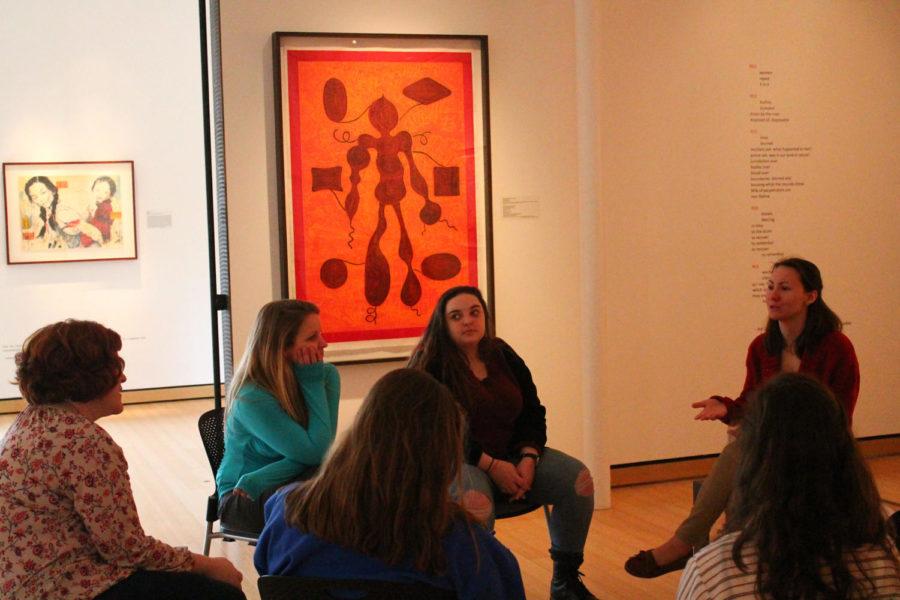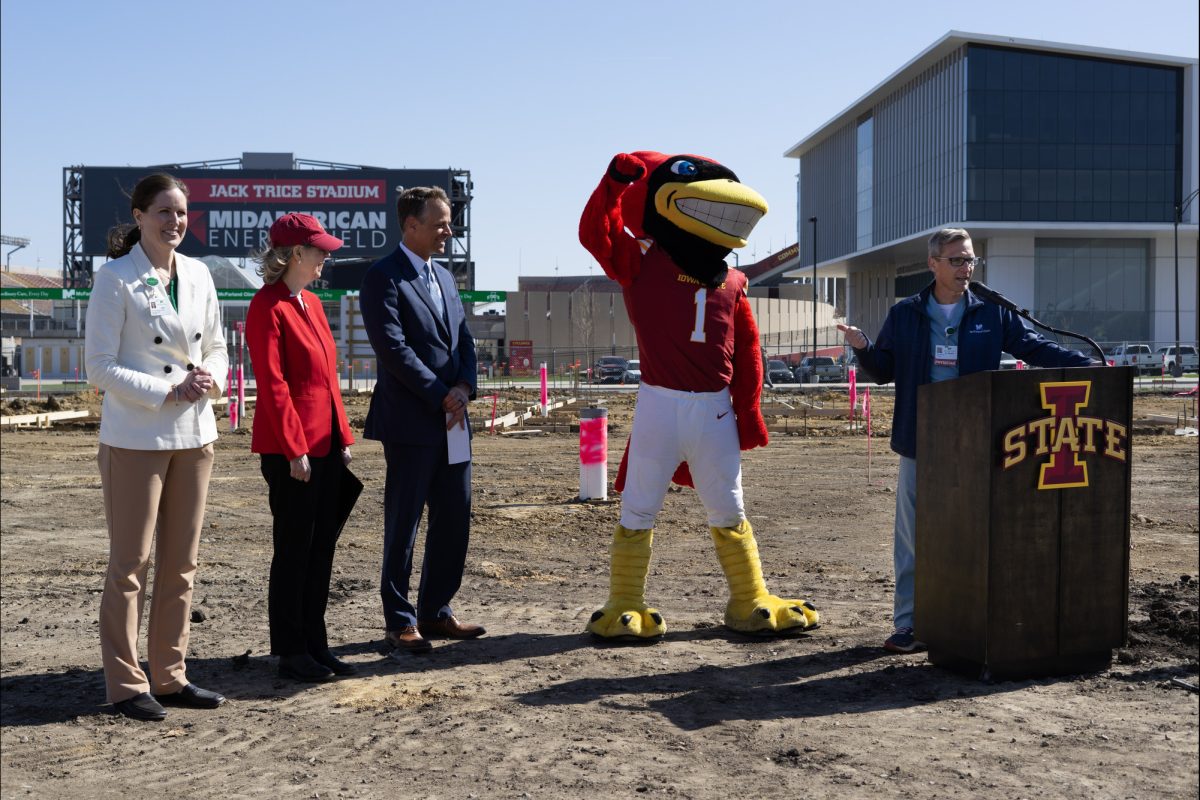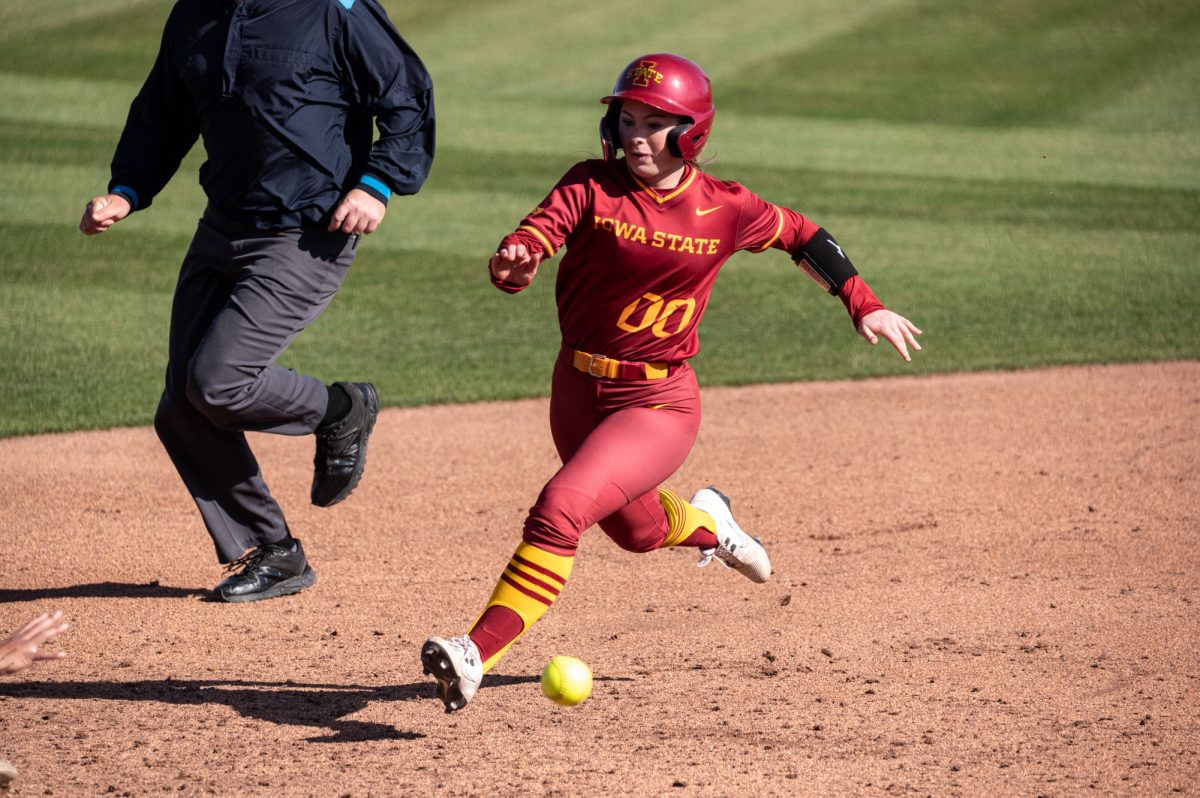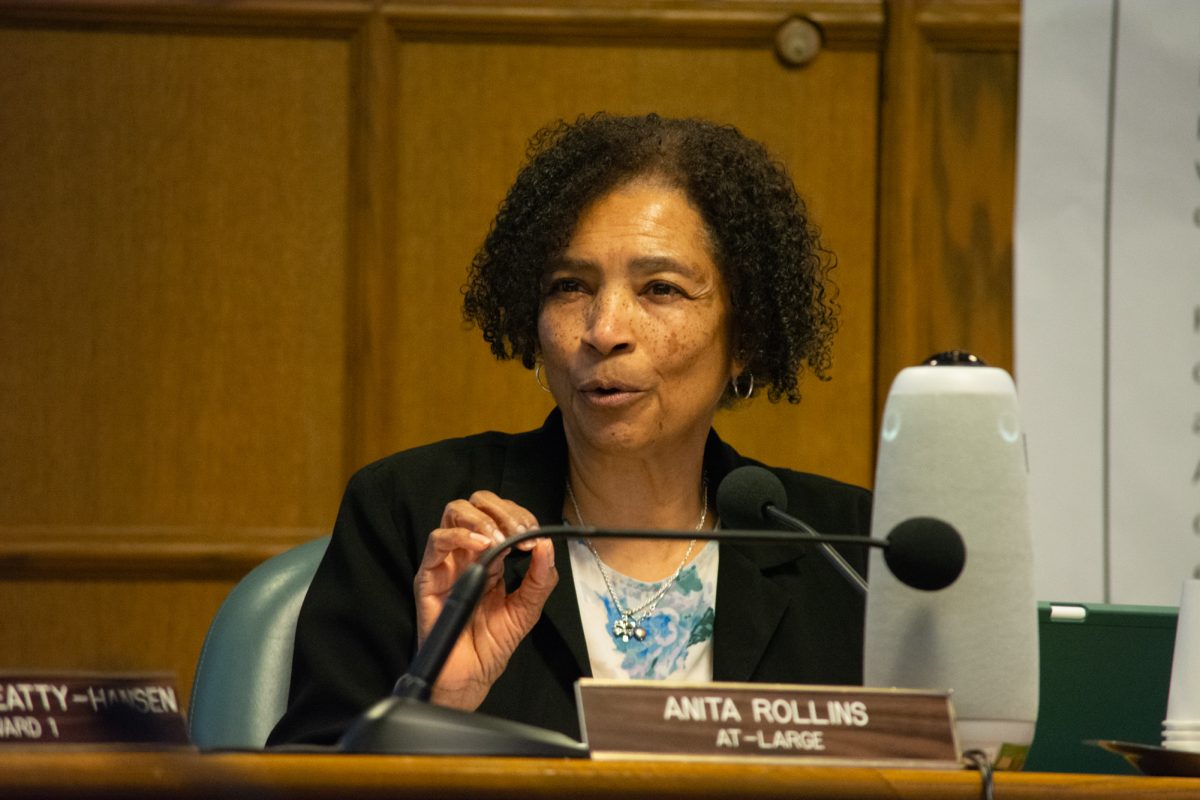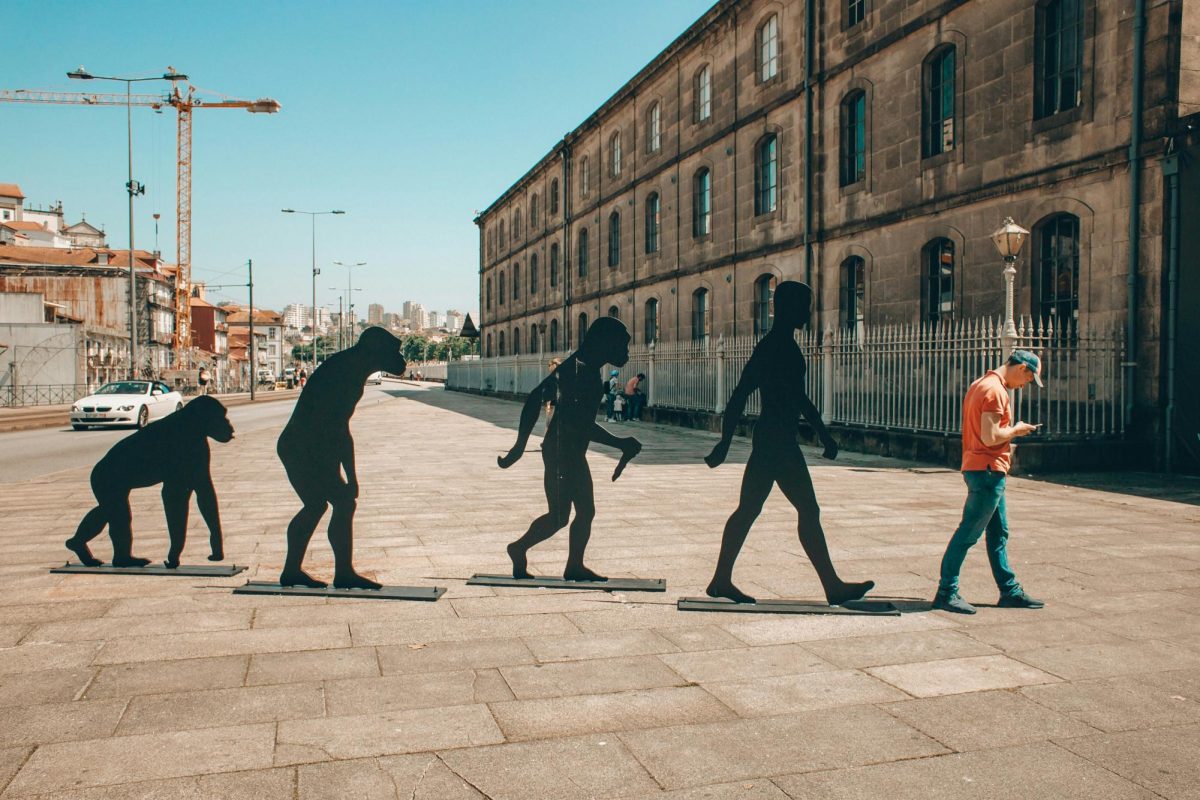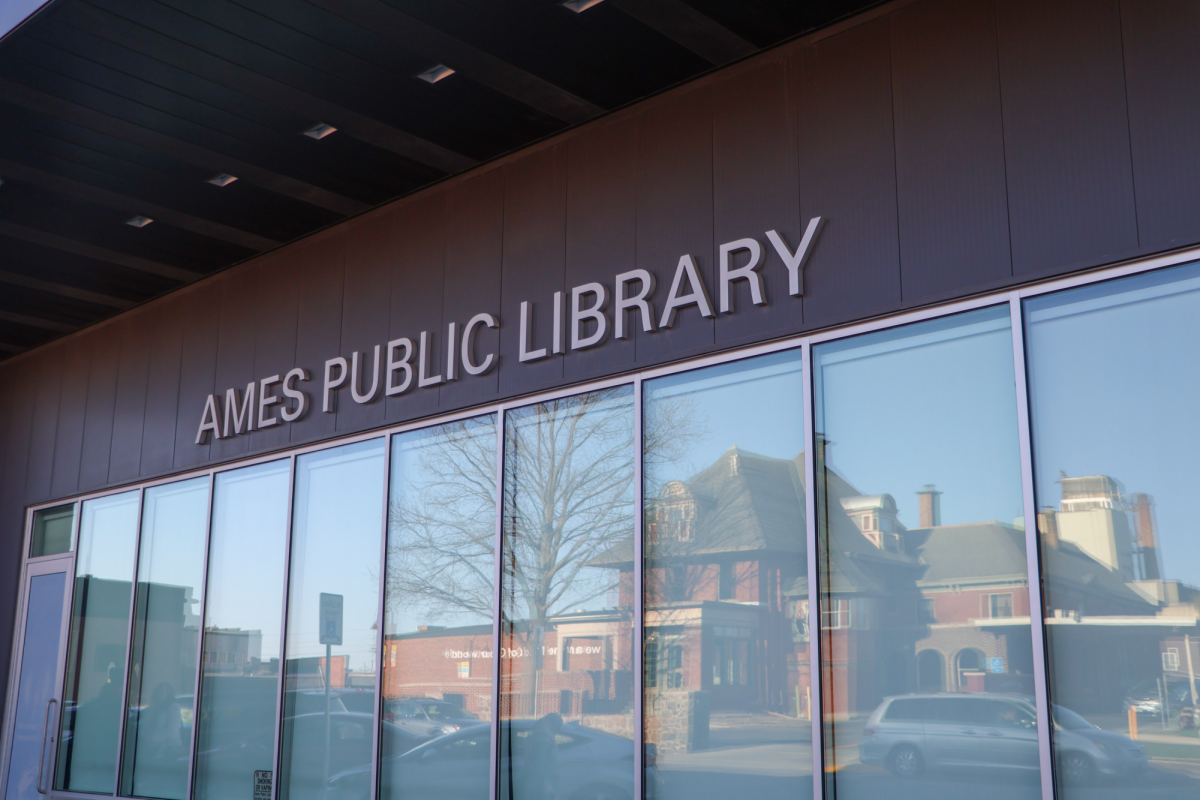University Museums’ Art + Issues forum sparks conversation on current events
Alexandra Kelly/Iowa State Daily
Aspen Pflanz, senior in History, leads a discussion on fake news with students in attendance at the Art+Issues discussion. Art+Issues was held in the Christian Art Museum from 2-4 p.m. on Monday, Jan. 30. The discussion consisted of tying in pieces of the new art exhibit with issues of today and was led by Nancy Gebahrt, Educator of Visual Literacy and Learning within the museum, and Pflanz.
January 31, 2017
Students and museum administrators gathered in Morrill Hall on Monday to engage in a discussion of art and current events during the Art + Issues forum. Among the discussed topics were fake news, partisan politics, and the Dakota Access Pipeline.
The monthly open forum was designed to allow an environment for students with different perspectives to engage in conversations on current topics. University Museums staff Erin O’Malley and Nancy Gebhart moderated the event with Aspen Pflanz, a senior history major at Iowa State.
Fake news was the initial topic of conversation, as attendees discussed where they consume their news. Among the mentioned sources were public news forums such as PBS and NPR, more informal methods such as Reddit and Buzzfeed, and social media sites like Facebook and Twitter.
The definition of “fake news” varied among the attenders. Some saw the term as the way details are organized, and what rhetorical devices are used to make a point. Another student previously used the term to refer to Hollywood gossip and rumors.
“I initially saw ‘fake news’ as completely fabricating things, like stories that are put out intentionally to deceive people. But it’s turned into leaving out the facts and not presenting all the details just because you don’t agree with it,” said Nancy Gebhart, educator of visual literacy and learning.
Gebhart cited the recent political campaign cycle as a proponent of fake news, and noted how partisan politics drove the use of fake news to discredit the opposition.
Students also discussed the deep divide of political party lines in American society today. Gebhart mentioned a new concept called “political tribalism”, which describes a strict adherence to one’s political party and opposition to any idea or issue that relates to the opposite party.
Iowa State student Anthony Geisler believed the divide evolved from too much focus on the main two parties in high school civics classes.
“I think it stems from civics classes where you’re forced to classify yourself [into a party] rather than thinking about the issues,” Geisler said.
A featured piece of art was George Longfish’s abstract work entitled “And Then There Were Five”, created to commemorate Wounded Knee Massacre. The painting served to transition into a discussion about the recent protests against the Dakota Access Pipeline at Standing Rock Reservation.
Students are encouraged to bring topics of interest with them to the forum, which will be held again on February 27 in the Christian Petersen Art Museum.


